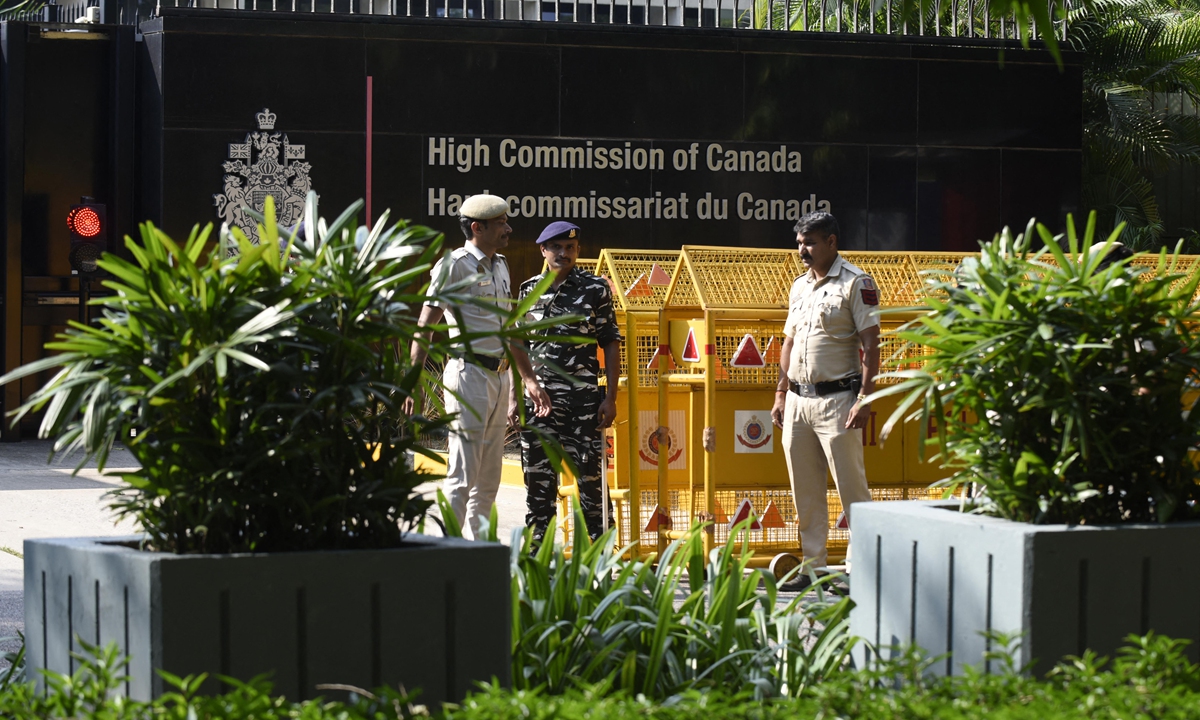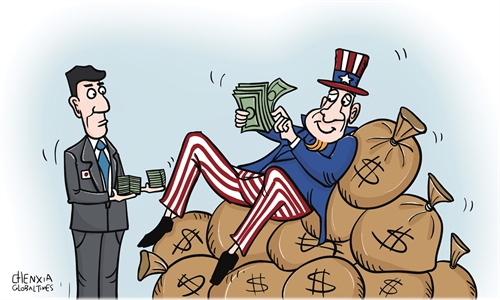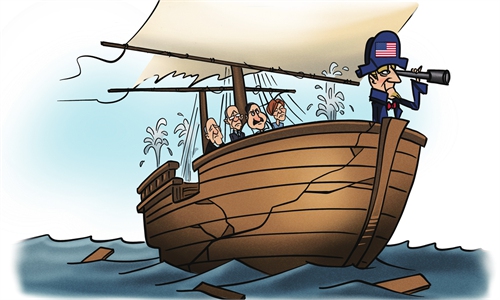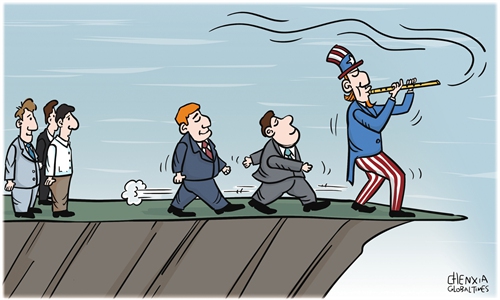
Indian police take security measures around the Canadian Embassy after Canada and India mutually expelled their diplomats in New Delhi, India on September,19 2023. Photo: AFP
In June of this year, Hardeep Singh Nijjar, a prominent Sikh leader as well as a Canadian citizen, was shot dead in Canada. Canada recently accused India of being involved in the assassination and kicked out an Indian diplomat, who Foreign Affairs Minister Mélanie Joly described as the head of the Indian intelligence agency in the country. In response, India promptly announced that it had expelled a senior Canadian diplomat based in India, rejecting Canada's allegations and calling them "absurd and motivated."In recent years, disputes between India and Canada have been centered around the Sikh community in Canada, which opposes the Modi government and advocates for Sikh rights. The Sikh community is a minority ethnic group in India with a population of just over 20 million. In Canada, which is one of the largest immigrant settlements for Sikhs worldwide, the Sikh community wields significant political, commercial and economic influence. The resurgence of the separatist Khalistan movement in recent years has become a major point of contention between India and Canada, severely impacting their bilateral relations. The ongoing tussle between the two countries has put India-Canada relations further at stake.
Observers generally believe that the lack of a meeting between Canadian Prime Minister Justin Trudeau and Indian Prime Minister Narendra Modi during the G20 summit in New Delhi is a signal of danger in the relationship between the two countries. Now, both countries are escalating mutual accusations and expelling diplomats, further exposing the vulnerability of the so-called value-based alliance system led by the US.
Western countries claim to be defenders of human rights and often criticize other nations for their human rights issues. Their praise for India's so-called "democracy" is primarily driven by geopolitical interests and the desire to include India in their anti-China alliance. Western elites are well aware of the substantial differences between India's so-called "democracy" and their own. Many individuals in the West do not support India's religious and minority policies.
Qian Feng, director of the research department at the National Strategy Institute of Tsinghua University, told the Global Times that the West, especially the US, in recent years has been waving the banner of common values of democracy and freedom, attempting to develop comprehensive cooperation with India in order to contain China. They are willing to turn a blind eye to what they think are India's human rights abuses and infringement on domestic ethnic minorities, which exposes the hypocrisy of the Western alliance with India based on their so-called common values.
Noticeably, whether Westerners genuinely consider India as a democratic country like themselves is questionable. It's just that currently India is useful to Westerners, so they take advantage of the situation, said Zhao Gancheng, a research fellow from the Shanghai Institute for International Studies.
As a key member of the Western alliance and a long-standing ally of the US, Canada has played an important role for the US in establishing a so-called rules-based international order and promoting its Indo-Pacific Strategy. However, the alliance currently being formed by the US, including India, is facing increasing embarrassment. This once again demonstrates the vulnerability of the US in building such alliances and the inappropriateness of ideological alliances in the context of the development trends of the times, neglecting the diversity of national interests. Both India and Canada have expelled senior officials from each other, and if the India-Canada relationship continues to deteriorate, the US might quickly step in to "mediate." After all, for the US, intervening in Canada's affairs is a familiar and easy task.



